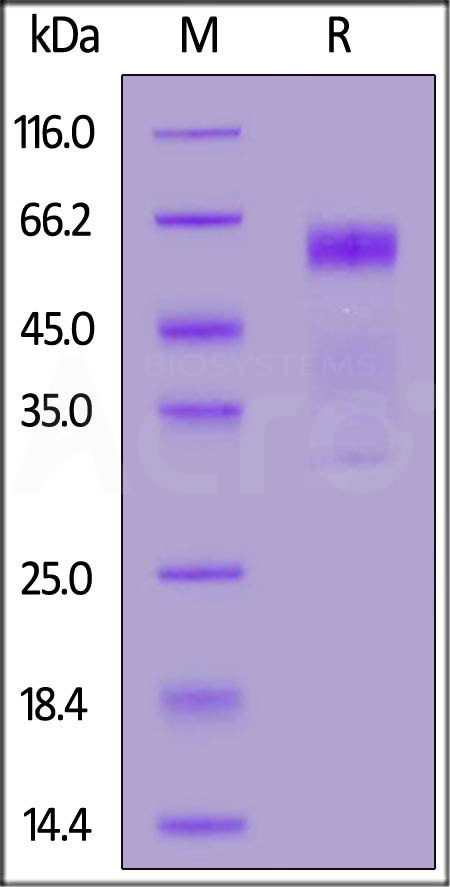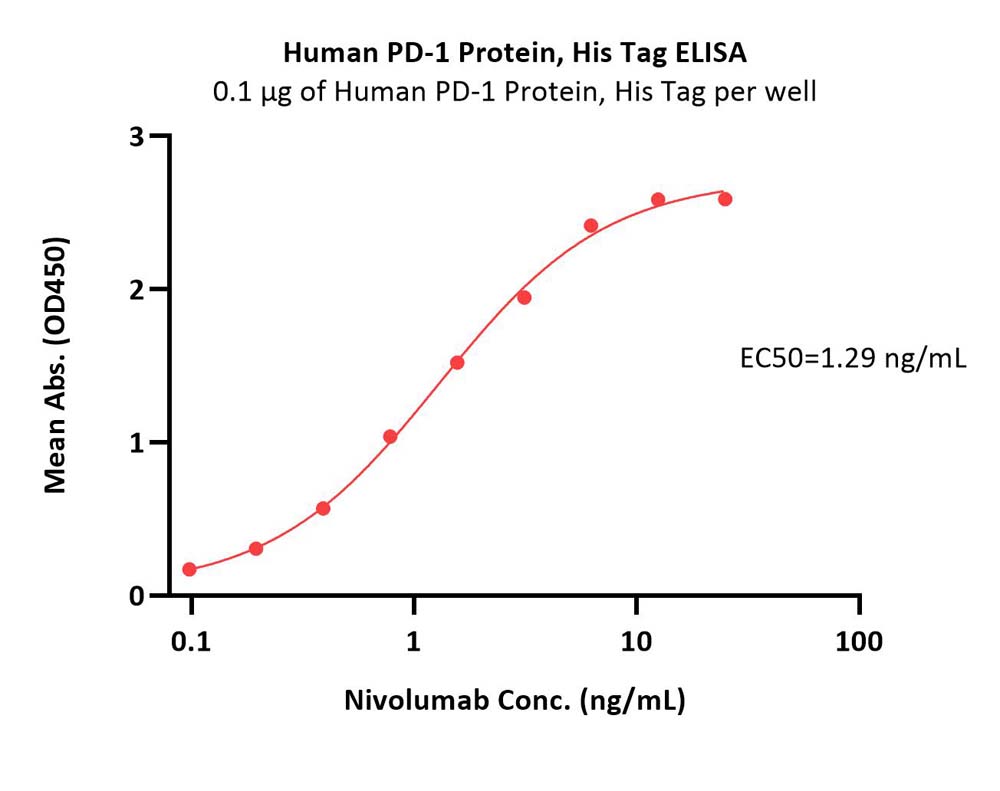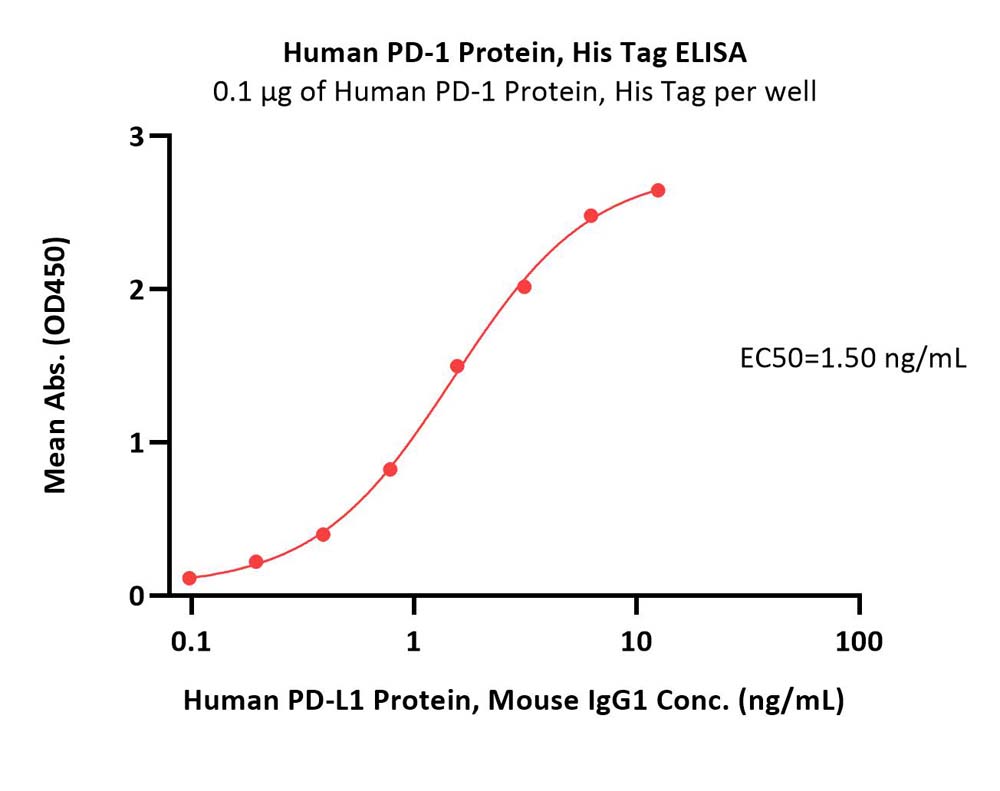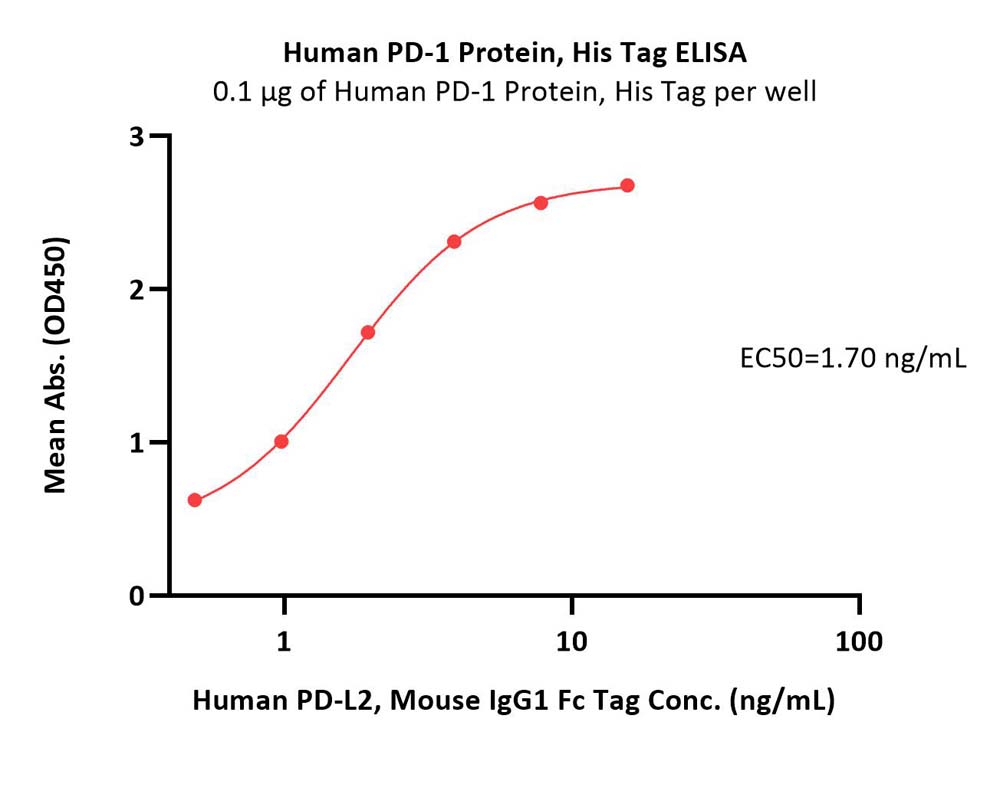分子别名(Synonym)
PDCD1,PD1,CD279,SLEB2
表达区间及表达系统(Source)
Human PD-1 Protein, His Tag (PD1-H52H2) is expressed from human 293 cells (HEK293). It contains AA Leu 25 - Gln 167 (Accession # Q15116-1).
Predicted N-terminus: Leu 25
Request for sequence
蛋白结构(Molecular Characterization)
Human PD-1 Protein, His Tag is designed and expressed as nanoparticles of approximately 25 nm diameter by displaying PD-1 ECD in native conformation. The nanoparticles each was coated with an average of 180 PD-1 ECD.
The nanoparticle technology allows directional and high-density display of human PD-1 on the surface of nanoparticles, thus greatly enhances the immune response in vivo to otherwise poorly immunogenic epitopes.
This protein carries a polyhistidine tag at the C-terminus. The protein has a calculated MW of 47.1 kDa. The protein migrates as 55-65 kDa under reducing (R) condition (SDS-PAGE) due to glycosylation.
内毒素(Endotoxin)
Less than 0.5 EU per μg by the LAL method.
纯度(Purity)
>90% as determined by SDS-PAGE.
制剂(Formulation)
Lyophilized from 0.22 μm filtered solution in PBS with glycine and sodium citrate, pH8.0 with trehalose as protectant.
Contact us for customized product form or formulation.
重构方法(Reconstitution)
Please see Certificate of Analysis for specific instructions.
For best performance, we strongly recommend you to follow the reconstitution protocol provided in the CoA.
存储(Storage)
For long term storage, the product should be stored at lyophilized state at -20°C or lower.
Please avoid repeated freeze-thaw cycles.
This product is stable after storage at:
- -20°C to -70°C for 12 months in lyophilized state;
- -70°C for 3 months under sterile conditions after reconstitution.
电泳(SDS-PAGE)

Human PD-1 Protein, His Tag on SDS-PAGE under reducing (R) condition. The gel was stained with Coomassie Blue. The purity of the protein is greater than 90%.
活性(Bioactivity)-ELISA

Immobilized Human PD-1 Protein, His Tag (Cat. No. PD1-H52H2) at 1 μg/mL (100 μL/well) can bind Nivolumab with a linear range of 0.2-2 ng/mL (QC tested).
Protocol

Immobilized Human PD-1 Protein, His Tag (Cat. No. PD1-H52H2) at 1 μg/mL (100 μL/well) can bind Human PD-L1 Protein, Mouse IgG1 Fc Tag (Cat. No. PD1-H52A3) with a linear range of 0.1-2 ng/mL (Routinely tested).
Protocol

Immobilized Human PD-1 Protein, His Tag (Cat. No. PD1-H52H2) at 1 μg/mL (100 μL/well) can bind Human PD-L2, Mouse IgG1 Fc Tag (Cat. No. PD2-H52A5) with a linear range of 1-2 ng/mL (Routinely tested).
Protocol
背景(Background)
Programmed cell death protein 1 (PD-1) is also known as CD279 and PDCD1, is a type I membrane protein and is a member of the extended CD28/CTLA-4 family of T cell regulators. PDCD1 is expressed on the surface of activated T cells, B cells, macrophages, myeloid cells and a subset of thymocytes. PD-1 has two ligands, PD-L1 and PD-L2, which are members of the B7 family. PD-L1 is expressed on almost all murine tumor cell lines, including PA1 myeloma, P815 mastocytoma, and B16 melanoma upon treatment with IFN-γ. PD-L2 expression is more restricted and is expressed mainly by DCs and a few tumor lines. PD1 inhibits the T-cell proliferation and production of related cytokines including IL-1, IL-4, IL-10 and IFN-γ by suppressing the activation and transduction of PI3K/AKT pathway. In addition, coligation of PD1 inhibits BCR-mediating signal by dephosphorylating key signal transducer. In vitro, treatment of anti-CD3 stimulated T cells with PD-L1-Ig results in reduced T cell proliferation and IFN-γ secretion. Monoclonal antibodies targeting PD-1 that boost the immune system are being developed for the treatment of cancer.























































 膜杰作
膜杰作 Star Staining
Star Staining












